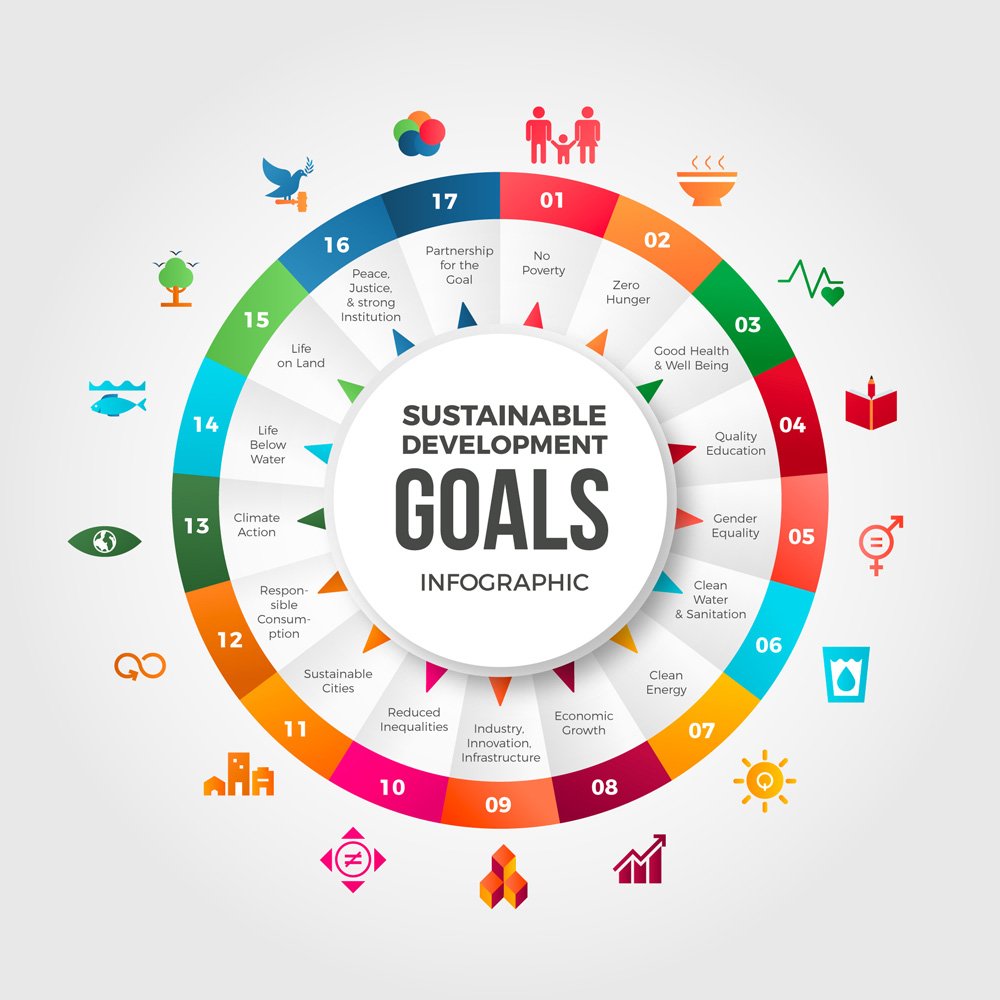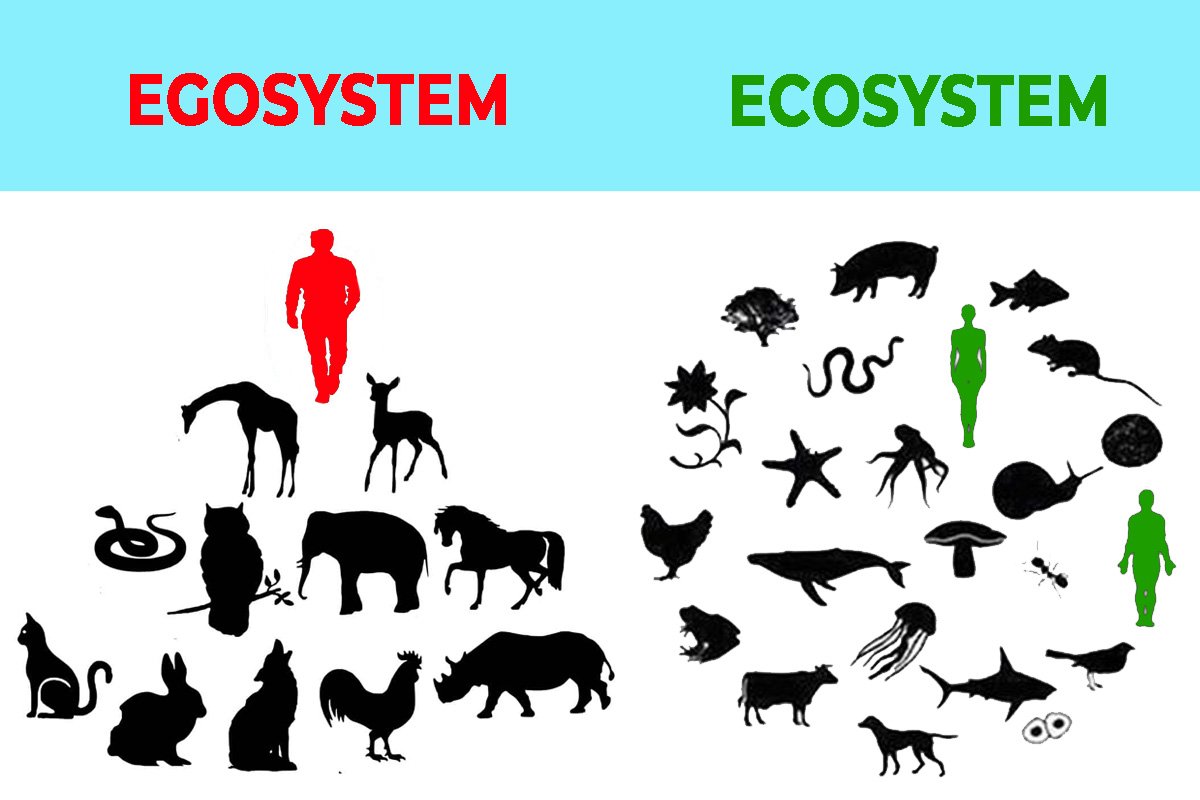The ego-system and ecosystem are two opposing mindsets that individuals and companies can adopt. The ego system is a self-centred mindset that prioritises personal desires and gains, while the ecosystem is a community-centred mindset that prioritises the well-being and happiness of our planet and future generations. We’re going to look at the difference between the Egosystem and the Ecosystem as well as how they impact our relationships with nature and other living things in this article.
What is an Egosystem?
An egosystem is a way of thinking about the world that centres around the individual ego. It is a self-centred perspective that prioritizes personal desires and interests above all else. In an egosystem, the focus is on getting what we want, regardless of the impact on others or the environment.
People who operate from an egosystem perspective often believe that success is measured by the amount of money, power, and material possessions they have. They do not consider the consequences of their action and keep on exploiting the natural resources for their own benefit
For example, a person who operates from an egosystem perspective might drive a gas-guzzling car because they enjoy the feeling of power and status it gives them. They might also take long, hot showers without thinking about the amount of water they are using or the impact on the environment.
What is an Ecosystem?
By contrast, an ecosystem is a manner of thinking about the world in which we recognize that all living things are interconnected. Ecosystem is about the overall health and well-being of the environment rather than focusing on individual needs and wants.
In an ecosystem, everything is connected. From microbes to the largest animal, each and every living organism plays a vital role in the health of the ecosystem. Ecosystems are complex and dynamic, with a delicate balance that must be maintained in order for everything to thrive.
People who operate from an ecosystem perspective recognize that their actions have an impact on the world around them. They try to live more sustainably in a way that supports and boosts the overall health of the environment and the well-being of all living beings. They may choose to walk or ride a bike, take shorter showers, and reduce their consumption of single-use plastics.

Impact of Egosystem
While it is difficult to quantify the exact impact of the egosystem on the environment, we have clearly seen the impacts of profits and short-term solutions on our environment
- Our activity has caused the global temperature to rise by 1.0°C since the late 18th century. This is due to deforestation, burning of fossil fuel and degradation of sea and land.
- The World Wildlife Fund estimates that 27 football fields worth of trees are cut down every minute, primarily to make room for agriculture, logging, and development
- The equivalent of one garbage truck of plastic is dumped into the ocean every minute, according to the Ellen MacArthur Foundation
- According to the Food and Agriculture Organization of the United Nations, approximately 33% of fish stocks are overfished, meaning that they are being harvested faster than they can reproduce
- A company may choose to use cheaper and less environmentally friendly materials to manufacture products, which may result in higher profits
- The world has lost 69% of its wildlife populations since 1970, with habitat destruction being the primary cause
Egosystem vs. Ecosystem: What’s the Difference?
The key difference between an egosystem and an ecosystem is the focus of attention. In an egosystem, the focus is on the individual and their desires, while in an ecosystem, the focus is on the interconnectedness of all living things.
People who operate from an egosystem perspective often prioritize their own desires and interests above the needs of others and the environment. They mostly make choices that benefit them in short-term, but ignore the negative consequences for others in the long term.
People who operate from an ecosystem perspective, on the other hand, recognize that their actions have an impact on the world around them. They strive to make choices that benefit the health of the environment and the well-being of all living things, even if it means sacrificing some of their own desires in the short term.
Why is Understanding Ecosystems Important?
Understanding ecosystems is essential for our survival as a species. We are dependent on this earth for fresh air we breathe, healthy food and water we consume. Ecosystems provide essential services such as pollination, nutrient cycling, and water purification that are critical for our well-being.
The ecosystem is being destroyed due to our actions, such as pollution, deforestation, contamination of water, increasing the amount of waste and more. By operating from an egosystem perspective, we are putting our own desires and interests above the needs of the environment and other living things.
If we want to ensure a healthy and sustainable future for ourselves and future generations, we must shift our perspective and start operating from an ecosystem perspective. This means recognizing the interconnectedness of all living things and striving to make choices that benefit the health of the environment and the well-being of all living things.
We need to seriously think about our actions in terms of their impact on the environment and other living things to seek the change we want. We can start by making small changes in our daily lives, such as reducing our use of single-use plastics, choosing to walk or bike instead of driving, and supporting businesses that prioritize sustainability.
In addition to making changes in our individual lives, we need to push for systemic change at the societal level. This means advocating for policies and practices that prioritize the health of the environment and the well-being of all living things over profit and economic growth.
Conclusion
To summarize, the concepts of egosystem and ecosystem present divergent approaches to interacting with our environment. An egosystem is a self-centred outlook that prioritizes personal interests and desires above everything else, while an ecosystem acknowledges the interdependence of all living things and values the well-being of the environment as a whole.
Comprehending ecosystems is critical for our survival as a species, and we must change our viewpoint to an ecosystem perspective if we want to ensure a healthy and sustainable future for ourselves and future generations. By implementing minor changes in our everyday lives and advocating for structural transformation at the societal level, we can initiate a positive influence on the world around us.



